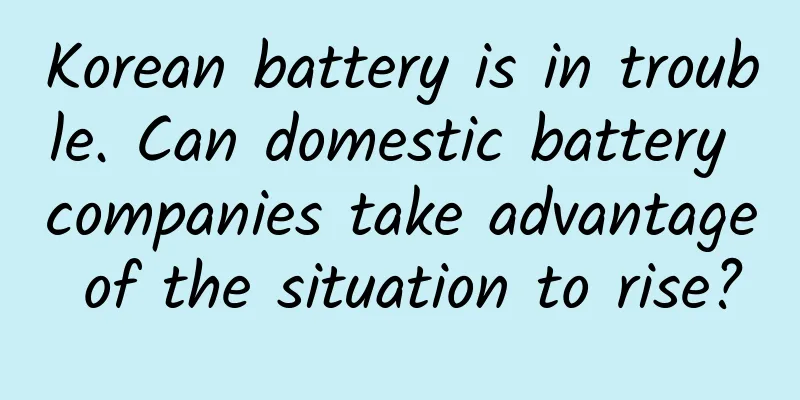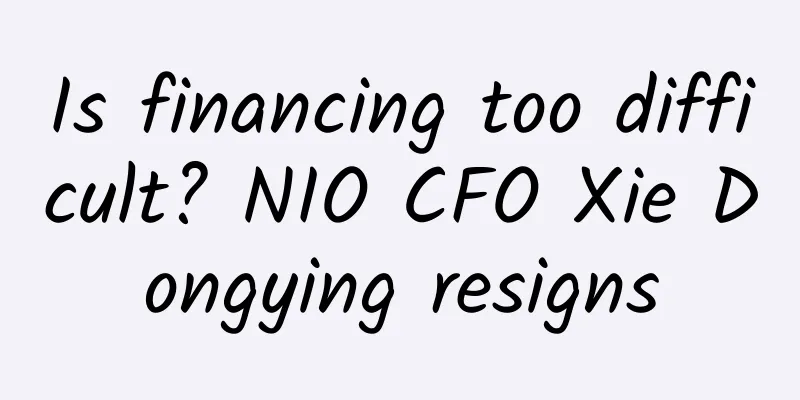Korean battery is in trouble. Can domestic battery companies take advantage of the situation to rise?

|
Some time ago, multiple Samsung Note7 battery explosion accidents around the world put Korean batteries at the forefront, and the domestic new energy vehicle market was also affected. Previously, a number of domestic passenger car and commercial vehicle manufacturers were using Korean batteries. As this incident continued to ferment, some car manufacturers have recently been quietly changing suppliers, and some models have been discontinued. Domestic automakers' decisive decision to change battery suppliers may not be just due to concerns about battery safety. In fact, after the Ministry of Industry and Information Technology issued the "Administrative Rules for Access of New Energy Vehicle Manufacturers and Products (Revised Version - Draft for Comments)" in May this year, these automakers should have started to think about this. Because according to this policy, if the power battery does not appear in the "Automotive Power Battery Industry Standard Conditions", new energy vehicles using this brand of battery will not receive national subsidies. In fact, almost all of the companies included in this battery catalog are Chinese local battery companies, and LG and Samsung power lithium batteries are not on the list. Since the battery supplier is to be changed, it is natural to make a new choice among many suppliers. At present, the power battery market structure formed by China, Japan and South Korea will be maintained in the short term. If domestic car companies give up Korean batteries, they are likely to choose between the other two. If the constraints of the "Automotive Power Battery Industry Standard Conditions" mentioned above are taken into consideration, Chinese local battery companies included in this catalog will naturally become the only choice for domestic car companies. However, foreign power battery companies will obviously not give up the Chinese market because China is the world's largest new energy vehicle market and everyone wants to get a piece of the pie. At this time, both foreign car companies and foreign battery brands seem to want to share the dividends of China's new energy vehicle development through joint ventures with Chinese companies. This can be seen from a series of actions since this year, such as Volkswagen and JAC establishing a joint venture company, and Samsung and Panasonic setting up joint power battery factories in China. Indeed, the joint ventures between foreign brands and domestic enterprises can be said to be a mutually beneficial "trade". Taking Volkswagen JAC as an example, Volkswagen can leverage JAC's new energy technology reserves, market layout and state-owned enterprise status, and JAC can leverage Volkswagen's brand awareness, quality control, technology reserves, product design, etc. The marriage between the two parties can indeed bring a win-win situation. Another example is Samsung, Sugon and Neusoft. Samsung batteries can use the joint venture to obtain national recognition and support, and enter the domestic market more smoothly. The joint venture partners can use this to improve their technology level or profits, which is also a good business. It seems that everyone is happy, but industry insiders say that if foreign brands continue to enter the Chinese new energy vehicle market in this way as they wish, the problem of "technological hollowing out" will likely arise in the new energy vehicle field. In the era of fuel vehicles, the Chinese automobile industry started late and had a weak foundation. It adopted the strategy of "trading market for technology" and built a large number of automobile joint ventures. Thirty years later, China has become the world's largest automobile producer and seller, but it is big but not strong, and its core technology is still controlled by others. It gave up the market but did not get core technology in return. Most joint ventures are still OEMs for foreign automobile brands, resulting in the evil result of technology hollowing out. In contrast, in today's Chinese new energy market, among China's vehicle manufacturers, BYD started out as a battery manufacturer. In addition to purchasing battery materials from outside, it also completed the design, production, system integration design and production of battery cells by itself. Chery chose to combine procurement with independent research and development, set up a battery cell research and development team, designed battery cells, and established a small trial production line to try to master battery cell technology. BAIC has established joint ventures with South Korea's SK and SAIC with the United States' A123, but currently batteries are also purchased from outside. Many models of other brands such as FAW, Dongfeng, Changan, and JAC use battery cells purchased from foreign battery companies. Domestic new energy vehicle companies naturally have their own difficulties. They are faced with restrictions in the "Automotive Power Battery Industry Standard Conditions" and concerns about technical level and product cycle. However, the phenomenon of technological hollowing out in the new energy field cannot be ignored. In the past two years, the country has implemented policies on new energy batteries in order to correct this problem in a timely manner while ensuring battery safety and supporting the development of domestic battery brands. In other words, the country vigorously promotes new energy vehicles, which must have two purposes. On the one hand, it is out of consideration for accelerating the construction of ecological civilization and promoting the social responsibility of sustainable development. On the other hand, it is also natural to use new energy vehicles to "overtake on the curve" and accelerate China's transition from a "big car country" to a "strong car country." As Wang Binggang, the leader of the expert group of the National Clean Car Action Coordination Leading Group, said recently in his WeChat Moments, in this field, if key components are dependent on foreign countries, a strong car country will be a hollow strong country, which is no different from the path of traditional cars. On the other hand, we also need to think about whether local enterprises' new energy batteries are definitely not good enough. Not necessarily! Fu Yuwu, chairman of the China Society of Automotive Engineers, recently made it clear in an interview with the media that the gap between domestic enterprises' power batteries and the international advanced level is not large. In other words, China has not made breakthroughs in some key technologies, and neither have Japan and South Korea. In fact, thanks to China's protection of local enterprises, Chinese battery companies have gained considerable market share in the past few years. Relevant figures show that in 2015, among the three companies with the largest global lithium battery shipments, Japan's Panasonic ranked first, BYD and CATL ranked second and third respectively, and Guoxuan High-tech and AVIC Lithium Battery also entered the top 15. In addition, in China, the shipment of power batteries from January to June 2016 reached 6.67Gwh, accounting for 42.5% of the whole year last year, and compared with 2.72Gwh in the first half of last year, the year-on-year growth rate reached 1.45 times. Among them, the top three manufacturers are BYD, CATL, and Guoxuan High-tech, with a total shipment of power batteries reaching 3.72Gwh, accounting for 55.8% of the market share. It can be seen that a number of leading companies with high market recognition have emerged in China's battery industry. And domestic and even foreign OEMs are slowly changing their views on China's local battery companies. In conclusion, as Wang Binggang said in his message, supporting and nurturing domestic parts suppliers should also be the social responsibility of vehicle manufacturers. It is not too late to say no to "technological hollowing out" from now on, facing up to the country's appropriate guidance at the policy level and supporting the development of the domestic new energy vehicle parts industry. As for domestic battery companies themselves, it is time to fight back. As a winner of Toutiao's Qingyun Plan and Baijiahao's Bai+ Plan, the 2019 Baidu Digital Author of the Year, the Baijiahao's Most Popular Author in the Technology Field, the 2019 Sogou Technology and Culture Author, and the 2021 Baijiahao Quarterly Influential Creator, he has won many awards, including the 2013 Sohu Best Industry Media Person, the 2015 China New Media Entrepreneurship Competition Beijing Third Place, the 2015 Guangmang Experience Award, the 2015 China New Media Entrepreneurship Competition Finals Third Place, and the 2018 Baidu Dynamic Annual Powerful Celebrity. |
>>: Continental builds wireless charging terminal for Mercedes-Benz, eliminating clutter in one go
Recommend
Qian Wenzhong's complete audio of Buddhism is shared and downloaded on Baidu Cloud Disk.
Qian Wenzhong is a professor at the History Depar...
WeX5 cross-terminal mobile development framework V3.1 official version
[[132317]] 1. Provide a lightweight and highly sc...
Super complete! 9 essential tools for information flow delivery, how many have you used?
Today, the editor has compiled 9 categories of to...
Adding to the audio-visual experience, long video will be popular again in 2024
In 2024, long video platforms will rise again. Fr...
Technology is being used more and more. Is this the tragedy of the color TV industry?
There are many companies that claim to be manufac...
How to create a high-click title and double the number of readers in 10 minutes?
In today's world of information explosion and...
We have compiled these 30 practical features that were not mentioned at Apple's WWDC conference for you
Although this year's WWDC conference did not ...
Nanping SEO training: In view of the instability of website keywords, a three-in-one method of external links + content + competitors should be adopted
When doing website optimization, you are actually...
Does eating burnt food increase the risk of cancer? Developing these five cooking habits can save your life
This article was reviewed by Pa Li Ze, chief phys...
WeChat 8.0.1 is here! Finally, you can display your online status
On January 21, WeChat ushered in a major version ...
This week we will see the Geminid meteor shower. Here is a scientific guide to making a wish →
This week, we ushered in the peak of the annual &...
Brand marketing methods in 2020!
In this fragmented era, in the context of decentr...









